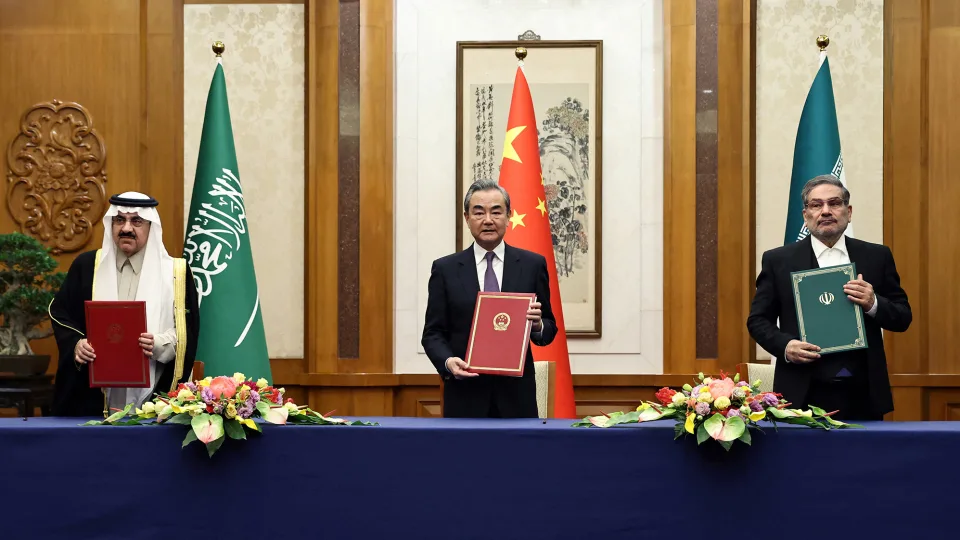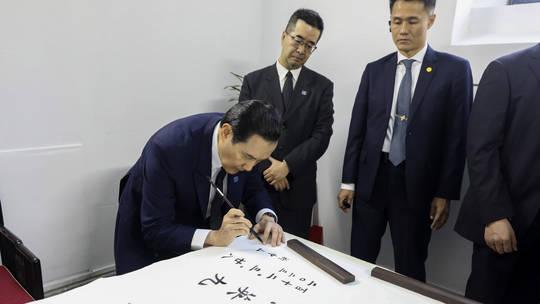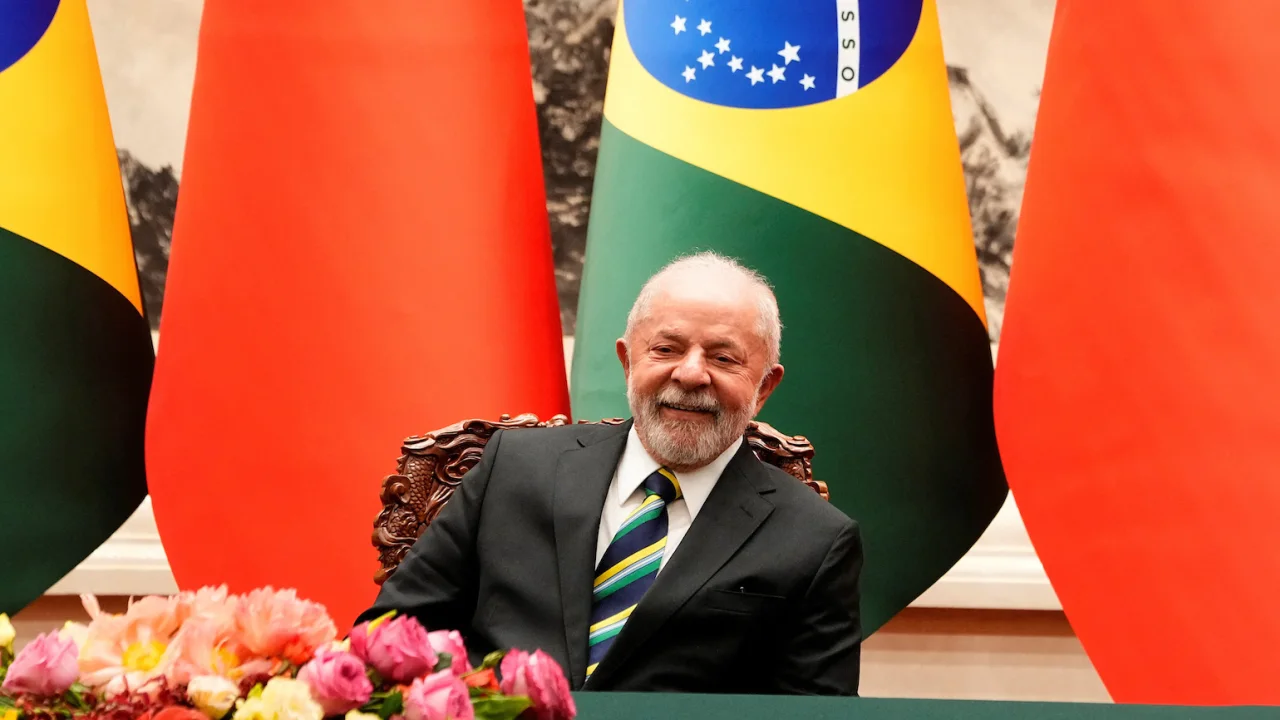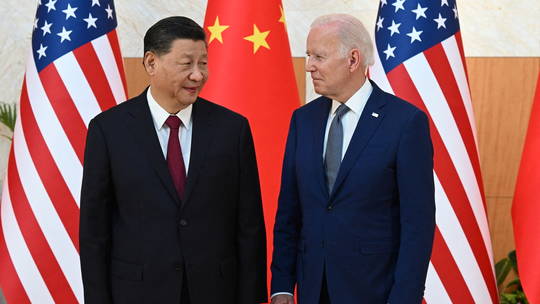Chinese and Saudi Arabian relations are improving. Should America be concerned?
March 31, 2023Tweet

Saudi Arabia has moved closer to joining a China-led Asian security and
economic bloc, having been granted the status of a dialogue partner in
the Shanghai Cooperation Organization (SCO). The SCO includes Russia and
China, as well as other major economic players such as India and
Pakistan. Saudi Arabia has also strengthened its energy ties with China
by announcing a $3.6 billion deal to buy 10% of China’s Rongsheng
Petrochemical. Analysts say that as the US’ rivalry with China and
Russia intensifies, Saudi Arabia and other Middle Eastern nations are
choosing to diversify their global partnerships, but Beijing is far from
becoming a US rival in the region. The kingdom’s ambassador to the
United States, Princess Reema bint Bandar Al Saud, said a review of the
US-Saudi relationship was “a positive thing,” stressing that the
alliance with the US was wide-ranging and robust.
Vali Nasr, professor of Middle East studies and international affairs at
the Johns Hopkins University School of Advanced International Studies
(SAIS), said the US needs to rethink its Middle East policy. However,
analysts say that the Saudi-China relationship is unlikely to become a
full-blown alliance due to Beijing's economy-oriented focus and its
aversion to playing regional politics. Saudi Arabia is China's biggest
supplier of crude and the biggest destination of Saudi oil exports, but
its economy is tied to the US as its currency is pegged to the dollar
and the sale of its oil is conducted in that currency. Jonathan Fulton,
senior non-resident fellow at the Atlantic Council, said that China has a
strict non-alliance policy and is unlikely to want to get bogged down
in Middle Eastern conflicts. China and Saudi Arabia have a policy of
non-interference in each other’s domestic affairs, which was clearly
spelled out when Chinese President Xi Jinping made a landmark visit to
Riyadh last year.
This may work well for Saudi Arabia, as it will continue its silence on
matters such as its treatment of Uyghurs and other Muslim minorities in
northwestern region of Xinjiang. After the surprise Saudi-Iran agreement
was announced this month, the Biden administration appeared to downplay
China’s role. White House Spokesman John Kirby said internal and
external pressure, including effective Saudi deterrence against attacks
from Iran or its proxies, ultimately brought Iran to the table. China’s
mediation is not necessarily a change in its Middle East policy, but a
“regional approach to a regional problem,” which regional actors saw the
US unable to resolve.
Saudi-arabia Sco China Pakistan Russia United-states Middle-east
Comments
Related news

US banks should disclose significant deposit losses - Bloomberg
Read more
Everyone here is Chinese. — Former president of Taiwan
Read more
Brazilian President: US should cease 'encouraging' the conflict in Ukraine
Read more
The American military intends to employ elaborate fabrications and seize equipment for propaganda.
Read more
Arteta: Zinchenko is sceptical and Saliba isn't moving forward swiftly
Read more
Ivan Timofeev: Will China and the US collapse like the USSR?
Read more
EU remarks on the Ukrainian import restriction imposed by Poland and Hungary
Read more
Clinics should be ready for further changes in children's sex, says the hospital director
Read more
Arctic and Greenland According to recent satellite data, ice sheets are melting quickly and contributing to sea level rise.
Read more